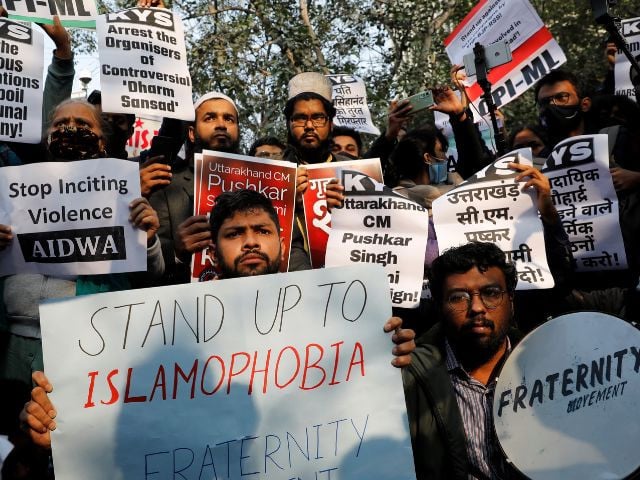-

-
-
Loading

Loading


Following the Pahalgam attack in Indian Illegally occupied Jammu and Kashmir, the rise of Hindutva music and the demolition of Muslim homes have further fueled anti-Muslim sentiment. These incendiary tracks, rapidly disseminated via social media platforms like YouTube and WhatsApp, are stoking religious tensions and inciting violence against Muslims across India. The song "Pehle Dharam Pocha" (They Asked About Religion First) surfaced within hours of the attack, accusing Indian Muslims of conspiring against Hindus and urging them to leave the country. This track alone garnered over 140,000 views within a week. Other songs, such as "Ab Ek Nahi Huye Toh Kat Jaaoge" (If You Don’t Unite Now You Will Be Slaughtered), call for Hindus to unite or face annihilation. Another, "Jaago Hindu Jaago" (Wake Up, Hindus), urges Hindus to identify "traitors within the country," a veiled reference to Muslims. These songs are part of a broader Hindutva movement that has gained traction in recent years. Artists like Kavi Singh and Chandan Deewana are known for producing tracks that promote Hindu nationalism and often target Muslims. The genre has been linked to incidents of anti-Muslim violence, with songs sometimes played during attacks on Muslim communities. In the wake of the Pahalgam attack, there have been reports of increased harassment and violence against Muslims. Kashmiri Muslims, in particular, have faced eviction from their homes, denial of medical care, and assaults. Human rights groups, including the Association for Protection of Civil Rights (APCR), have recorded at least 21 incidents of anti-Muslim violence in the days following the attack. These incidents include physical assaults on Kashmiri Muslims, the delivery of hate speeches at public rallies, and demands for Muslim students to be evicted from their hostels. Chetan Patel, the VHP Raigad district president, delivered a disturbing speech in Alibaug, calling for the economic and social boycott of Muslims. He labeled secular individuals as "worms" to be crushed and urged violence and public humiliation against those promoting communal harmony. Chetan Patel framed the situation as a "dharma yudh" (religious war), promoting economic isolation of minorities and advocating for vigilantism, undermining India’s commitment to secularism and equality. In Uttar Pradesh, a Muslim man was shot dead by a Hindu supremacist who claimed responsibility for the killing as retribution for the Pahalgam attack. In addition to the rise of these hate-filled songs, social media has been flooded with AI-generated videos, memes, and images recreating the Pahalgam attack, all carrying similar anti-Muslim undertones. Some posts have compared the Kashmir attack to the October 2023 Hamas attack on Israel, pushing the idea that India should respond to the attack in a similarly aggressive manner. At the same time, authorities have escalated actions against Muslims, including the demolition of approximately 2,000 huts in Gujarat, which were claimed to be illegally occupied by Bangladeshis. Activists argue that these demolitions are part of a broader, systematic campaign aimed at portraying Indian Muslims as "outsiders" and further marginalising them. The demolition of these homes has displaced many Muslim families, exacerbating their already precarious living conditions and adding to the growing sense of insecurity within the community. The labeling of Muslims as "illegal migrants" or "traitors" by nationalist groups is deepening their sense of alienation and increasing divisions within the country. Prime Minister Modi’s government, which is closely aligned with right-wing Hindu groups, has faced growing criticism for its failure to address the rising tide of hate and violence against Muslims.
if you want to get more information about this news then click on below link
More Detail